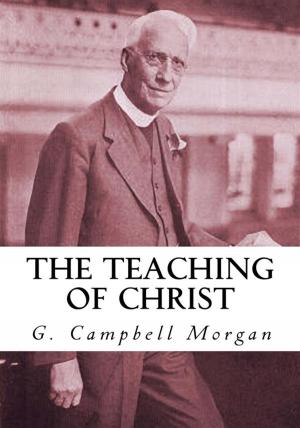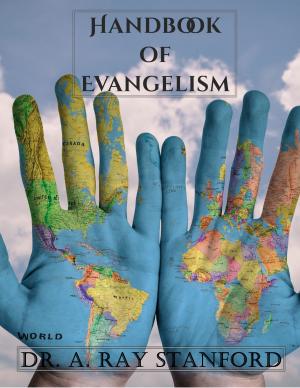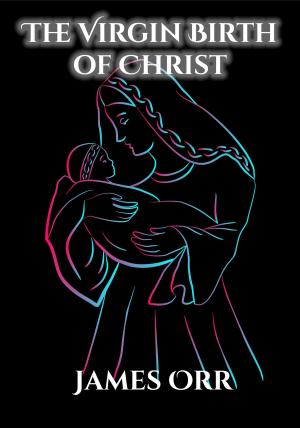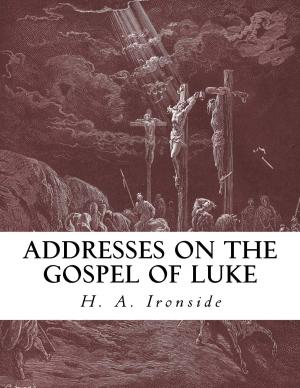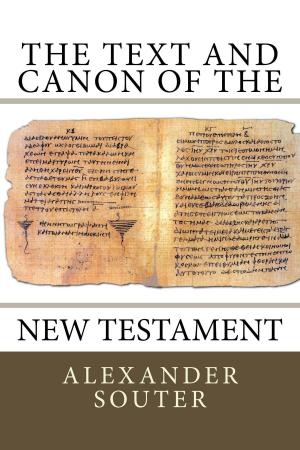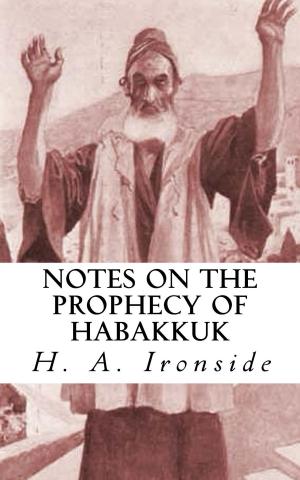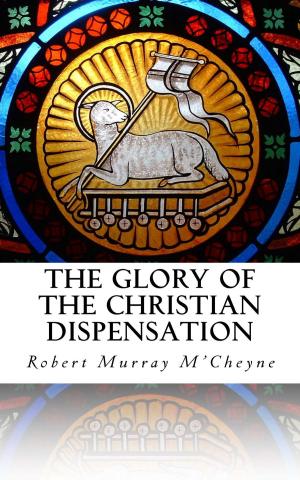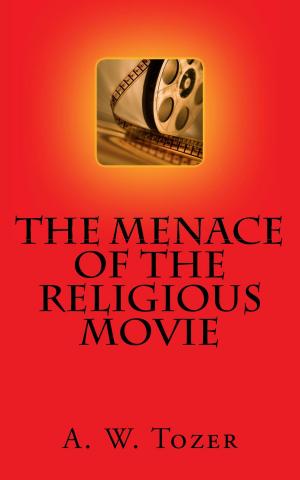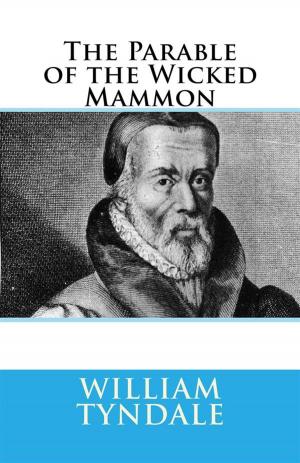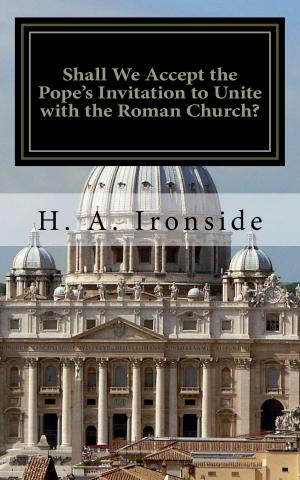Man's True Destiny
Nonfiction, Religion & Spirituality, Christianity, Christian Literature, Christian Life| Author: | John Williamson Nevin | ISBN: | 1230001945911 |
| Publisher: | CrossReach Publications | Publication: | October 1, 2017 |
| Imprint: | Language: | English |
| Author: | John Williamson Nevin |
| ISBN: | 1230001945911 |
| Publisher: | CrossReach Publications |
| Publication: | October 1, 2017 |
| Imprint: | |
| Language: | English |
The necessity of owning a supernatural destiny in the case of man, lies to a certain extent in his natural constitution itself, in the relation he is seen and felt to bear to the world around him in his present mortal state. This relation in one view is of the most close and intimate kind. The organization of the world, as a system of nature, comes to its completion in his person. This is signified to us very plainly in the Mosaic account of the creation; where the whole magnificent process, rising gradually from one stage of order and life to another, is represented as reaching its climax finally on the sixth day, when God said: “Let us make man in our image, after our likeness, and let them have dominion over the fish of the sea, and over the fowls of the air, and over the cattle, and over all the earth, and over every creeping thing that creepeth upon the earth.” Man thus is strictly the perfection of nature, the crown of its glory, the very centre of its life. In him the world comes to its last, deepest, fullest significance and sense. So to some extent even in his mere bodily organization. But far more still in his soul, in his intelligence, in the self-acting power of his will—that higher life of reason, of which only the most dim and remote foreshadowings are to be met with in the lower spheres of creation, but whose appearance here at once proclaims itself to be the central light, that reflects back on every other part of the system its true meaning and form. In such relation simply to the present world, our human intelligence and will, notwithstanding the spirituality which belongs to them in their own character, are to be regarded as appertaining still to the constitution of nature. They are the sublimation of this indeed to its highest potency, its most ethereal quality and sense, and present it thus under a form where to be true to itself it ought to pass away in the presence of a higher and more enduring economy; but the sublimation itself, the taking up of the world of nature into the world of mind, is now in and of itself the subjection of it in this way, to the claims and purposes of every such economy above nature. The process may stop with the mere intellectualization, so to speak, of the present order of things, the world as it now stands; and then it matters not how far the activity of thought may seem to go, exploring the depths or scaling the heights of God’s creation; it matters not with what flights of science or art it may appear even to pass over the boundaries of time and space, and to hold communion in its own way with what it is pleased to denominate the absolute and the eternal, all will remain in the end a revelation of the life of nature merely, and nothing more. The mind of Humboldt, regarded as a mirror simply of the outward world he describes, is of one order with Cosmos, whose image it serves so magnificently to reflect. Mirror, image, and object, belong alike to the sphere of nature, and have to do only with its organization as such. So deep and far-reaching is the relation, by which man belongs to the present world, stands in it, moves in it, finds in it his natural and congenial home. He is the consummation of nature. It unfolds the entire volume of its wealth; it comes to its full efflorescence, only in his person.
The necessity of owning a supernatural destiny in the case of man, lies to a certain extent in his natural constitution itself, in the relation he is seen and felt to bear to the world around him in his present mortal state. This relation in one view is of the most close and intimate kind. The organization of the world, as a system of nature, comes to its completion in his person. This is signified to us very plainly in the Mosaic account of the creation; where the whole magnificent process, rising gradually from one stage of order and life to another, is represented as reaching its climax finally on the sixth day, when God said: “Let us make man in our image, after our likeness, and let them have dominion over the fish of the sea, and over the fowls of the air, and over the cattle, and over all the earth, and over every creeping thing that creepeth upon the earth.” Man thus is strictly the perfection of nature, the crown of its glory, the very centre of its life. In him the world comes to its last, deepest, fullest significance and sense. So to some extent even in his mere bodily organization. But far more still in his soul, in his intelligence, in the self-acting power of his will—that higher life of reason, of which only the most dim and remote foreshadowings are to be met with in the lower spheres of creation, but whose appearance here at once proclaims itself to be the central light, that reflects back on every other part of the system its true meaning and form. In such relation simply to the present world, our human intelligence and will, notwithstanding the spirituality which belongs to them in their own character, are to be regarded as appertaining still to the constitution of nature. They are the sublimation of this indeed to its highest potency, its most ethereal quality and sense, and present it thus under a form where to be true to itself it ought to pass away in the presence of a higher and more enduring economy; but the sublimation itself, the taking up of the world of nature into the world of mind, is now in and of itself the subjection of it in this way, to the claims and purposes of every such economy above nature. The process may stop with the mere intellectualization, so to speak, of the present order of things, the world as it now stands; and then it matters not how far the activity of thought may seem to go, exploring the depths or scaling the heights of God’s creation; it matters not with what flights of science or art it may appear even to pass over the boundaries of time and space, and to hold communion in its own way with what it is pleased to denominate the absolute and the eternal, all will remain in the end a revelation of the life of nature merely, and nothing more. The mind of Humboldt, regarded as a mirror simply of the outward world he describes, is of one order with Cosmos, whose image it serves so magnificently to reflect. Mirror, image, and object, belong alike to the sphere of nature, and have to do only with its organization as such. So deep and far-reaching is the relation, by which man belongs to the present world, stands in it, moves in it, finds in it his natural and congenial home. He is the consummation of nature. It unfolds the entire volume of its wealth; it comes to its full efflorescence, only in his person.

